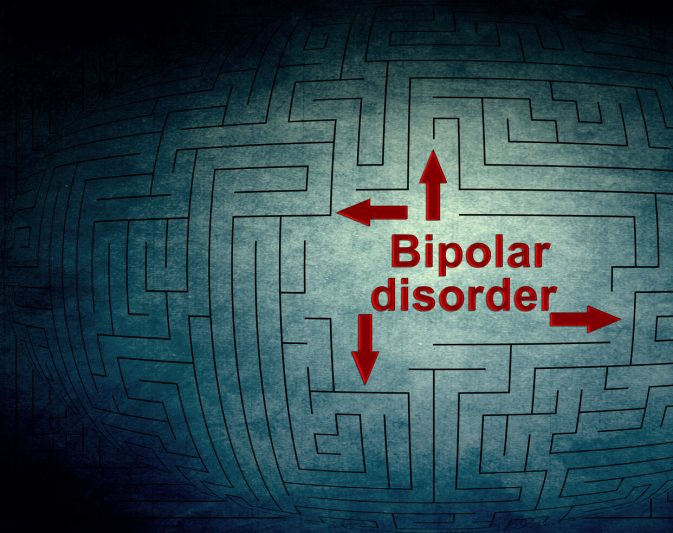Qualifying For Disability Benefits for Bipolar Disorder in Chicago, IL
Men and women of any age can be affected by bipolar disorder, also known as manic depression. Bipolar disorder causes severe mood swings, and for some people, they experience episodes of both mania and depression, to a varying degree of severity. Episodes of mania can cause symptoms including high energy, a reduced need for sleep, racing thoughts, and poor and/or destructive behavior. Depressive episodes can cause symptoms such as low energy, low motivation, losing interest in everyday activities, and suicidal thoughts. These back-and-forth mood episodes can last for days and even for months at a time. Treatment—often a combination of medications and psychotherapy—can and often should continue for the entire life of a bipolar patient.
According to the National Institutes of Health (NIH), there are three main types of bipolar disorder:
Bipolar I Disorder— defined by manic episodes that last at least 7 days, or by manic symptoms that are so severe that the person needs immediate hospital care. Usually, depressive episodes occur as well, typically lasting at least 2 weeks. Episodes of depression with mixed features (having depression and manic symptoms at the same time) are also possible.
Bipolar II Disorder – defined by a pattern of depressive episodes and hypomanic episodes, but not the full-blown manic episodes described above.
Cyclothymic Disorder (also called cyclothymia)— defined by numerous periods of hypomanic symptoms as well numerous periods of depressive symptoms lasting for at least 2 years (1 year in children and adolescents). However, the symptoms do not meet the diagnostic requirements for a hypomanic episode and a depressive episode. There are also other specified and unspecified bipolar and related disorders, defined by bipolar disorder symptoms that do not match the three categories listed above.
If you (or someone you care about) have been diagnosed with bipolar disorder which is so severe that you are unable to work, you may be eligible for Social Security disability benefits.
To receive disability benefits, however, you will need more than just a diagnosis of bipolar disorder. You must present evidence to prove you are unable to function well enough to work.
There are two ways you can qualify for Social Security disability.
The first is to meet a Social Security listing. The Social Security Administration has a set of procedures in place to identify disabilities that are medically eligible for benefits. These procedures are published in a handbook known as the “Blue Book,” and it includes a long list of various disabling conditions known as “listings.” To be eligible for Social Security disability benefits due to bipolar disorder, you must meet the requirements of listing 12.04 in the Blue Book:
Bipolar disorder, characterized by three or more of the following:
AND
B. Extreme limitation of one, or marked limitation of two, of the following areas of mental functioning (see 12.00F):
- Understand, remember, or apply information (see 12.00E1).
- Interact with others (see 12.00E2).
- Concentrate, persist, or maintain pace (see 12.00E3).
- Adapt or manage oneself (see 12.00E4).
OR
C. Your mental disorder in this listing category is “serious and persistent;” that is, you have a medically documented history of the existence of the disorder over a period of at least 2 years, and there is evidence of both:
- Medical treatment, mental health therapy, psychosocial support(s), or a highly structured setting(s) that is ongoing and that diminishes the symptoms and signs of your mental disorder (see 12.00G2b); and
- Marginal adjustment, that is, you have minimal capacity to adapt to changes in your environment or to demands that are not already part of your daily life (see 12.00G2c).
It is a fact that very few people who apply for Social Security disability benefits meet the strict requirements of the Blue Book listings. However, there is a second way to qualify—by proving that you are unable to perform any work due to your bipolar disorder, given your age, education, and past work experience.
Bear in mind that you must provide solid medical evidence to prove that your condition prevents you from performing any substantial work, so any limitations or symptoms caused by your bipolar disorder should be recorded in your medical records. However, according to the Mayo Clinic, “people with bipolar disorder often don’t recognize how much their emotional instability disrupts their lives and the lives of their loved ones, and don’t get the treatment they need.” In addition, according to the NIH, “upwards of 60% of bipolar patients are at least partially non-adherent to medications.” If you have a family member or friend with bipolar disorder, it is important to encourage your loved one as much as possible to obtain treatment, including individual therapy, and follow the treatment plan outlined by his or her mental health professional.
Whether it’s issues of medication compliance, periods of improvement, or disruptive job-killing relapses, we have helped thousands struggling with bipolar disorder. If you are thinking about applying for Social Security disability or if you have been turned down for disability benefits, schedule a free consultation with Nash Disability Law. You can complete our simple online form, or better yet, call our office today at 312.219.9414.


